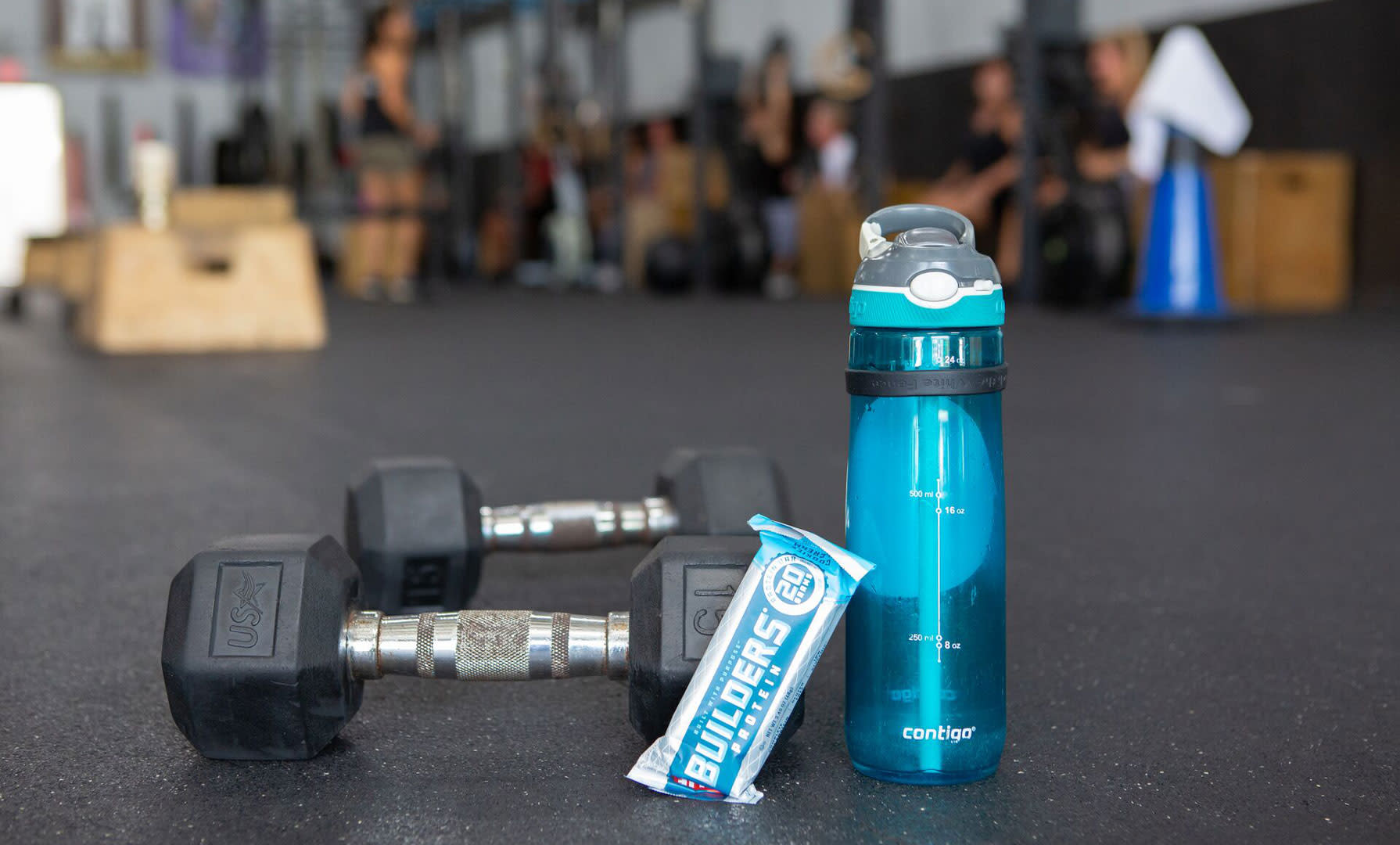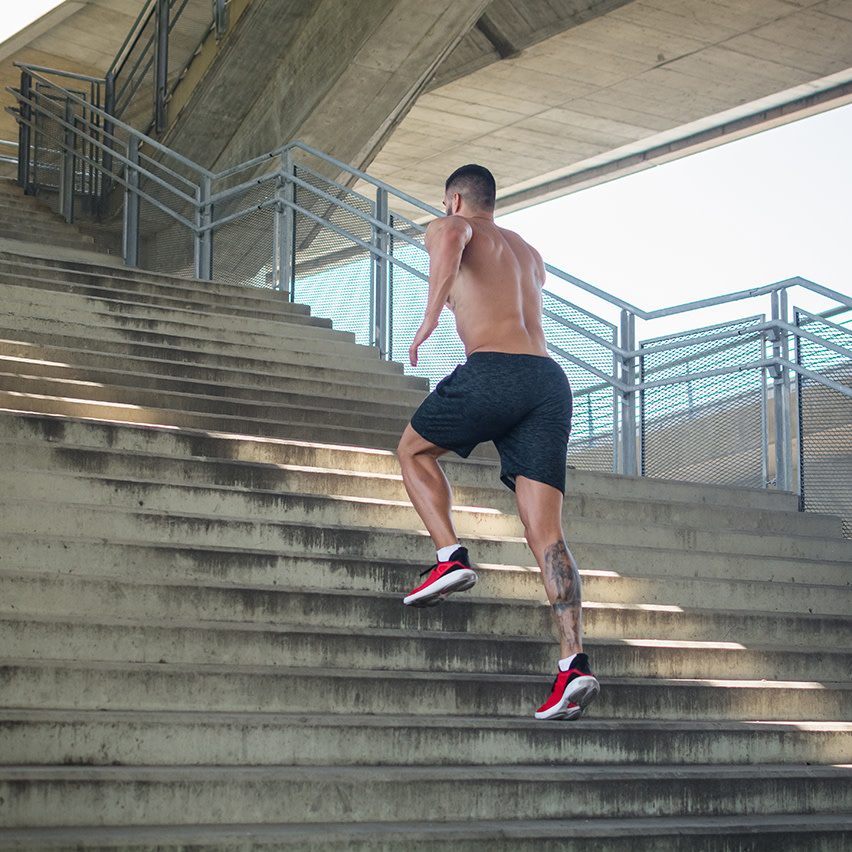The ideas and suggestions written below are provided for general educational purposes only and should not be construed as medical advice or care. Always seek the advice of a physician or other qualified health provider before beginning any physical fitness or health- and nutrition-related activity.
When you work out regularly, it’s nice to know you are getting the most bang for your time and effort you put in. Nutrition can play a big role in helping you positively respond to your fitness routine. What you eat in a 24-hour context is important, but many fitness enthusiasts specifically wonder if and how they should fuel after a workout. Here’s what you need to know about what to eat after a workout.
Who Should Eat After a Workout?
It’s important to first determine if it’s valuable to strategically eat after a workout or not based on your exercise duration, intensity, and goals. Not everyone is a candidate for post-workout fuel, but it can certainly be impactful for the right person.
Fueling after a workout can be most beneficial for the following types of people:
Those whose goal is to increase their strength and therefore their amount of muscle (lean body mass)
Those who enjoy working out at a high intensity and/or participate in multiple workouts a day
Those who have fewer than 24 hours between intense workout sessions
Those who participate in endurance training and expend a lot of energy during workouts
Those who have increased energy and protein goals connected to their performance goals
Those who haven’t eaten in a while (3-5 hours), are working out during a regularly scheduled eating time, or just find themselves hungry after a workout
In addition to these scenarios, age can also be a reason to reach for post-workout fuel.
As you age, building muscle can become more challenging due to a variety of physiological factors. Research has shown that older exercisers may need significantly more protein to trigger muscle growth and should take advantage of eating soon after resistance workouts.1
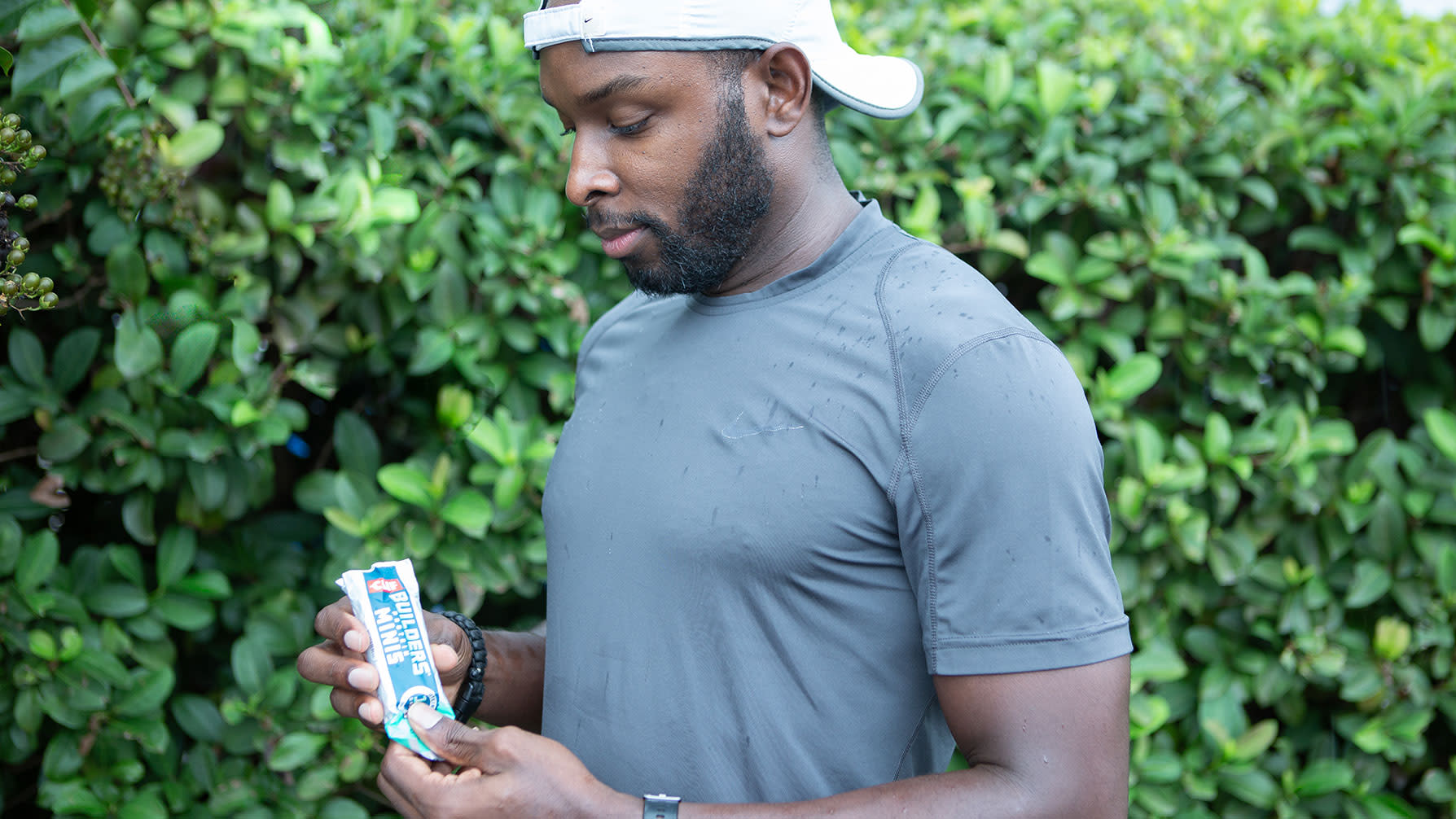
Why Is It Important to Eat After a Workout?
Eating post-workout first became popular after researchers found that when exercisers consumed energy and protein immediately after a workout, they recovered better and experienced greater improvement in fitness markers than those who did not. Specifically, post-workout fuel can help with reloading muscle energy stores (called glycogen), increasing muscle size and strength, and supporting muscle repair. This translates to you feeling better recovered, better fueled, and ultimately performing better in subsequent workouts.2
For more on the importance of glycogen, see the article “The Role of Sugar in an Athlete’s Diet.”
Eating protein specifically after a workout can be a valuable tool for building muscle, an outcome you might be pursuing. Certain amino acids, like leucine, in your bloodstream immediately after exercise are very effective in triggering muscle building.1,3 Therefore, including high-quality sources of protein in your post-workout fuel is a strategic choice for maximizing results of resistance workouts.
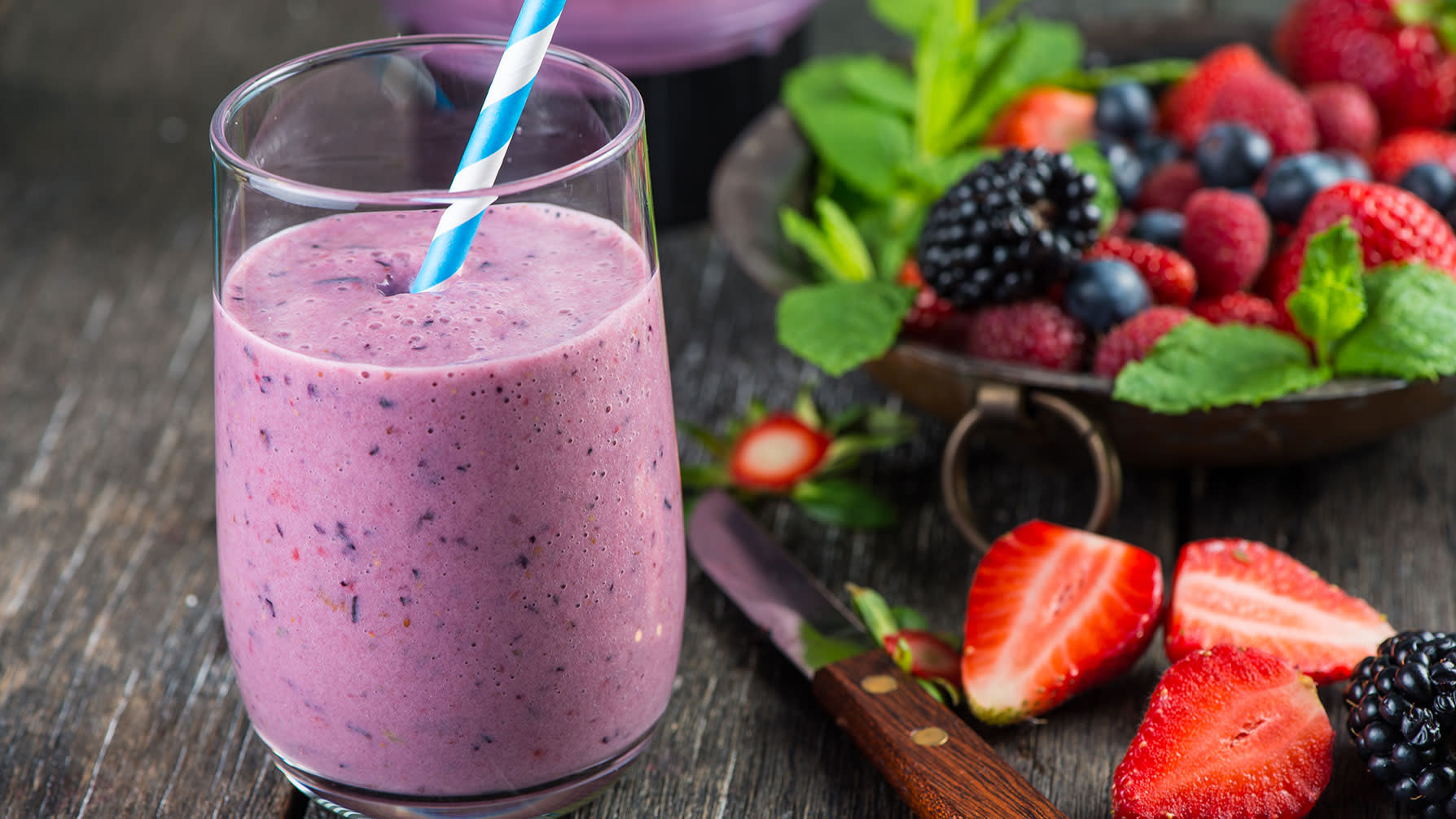
What Are the Best Foods to Eat After a Workout?
The best foods for you to eat post-workout depends on many factors, such as the time of day, whether you want/need a meal or snack, if you’re looking for convenience, if you have access to refrigeration, if you have specific food preferences, and more. There are plenty of options to consider to help you find what works best for you.
The two main macronutrients to consider for post-workout fuel are carbohydrates and protein. Focus on replenishing with carbohydrates if you completed an endurance-style workout, burned a high amount of energy, and/or need to reload energy quickly to complete another workout.1
Protein is important for repairing and building muscle, and studies suggest that at least 20 grams post-workout is needed to trigger these benefits. Animal-based protein like whey and plant-based forms like soy have been found to deliver a complete amino acid profile.3
You don’t have to choose either one or the other, however. Combining carbohydrates with protein after a workout is a winning combination for replenishing glycogen stores, promoting muscle growth, and supporting overall performance.2
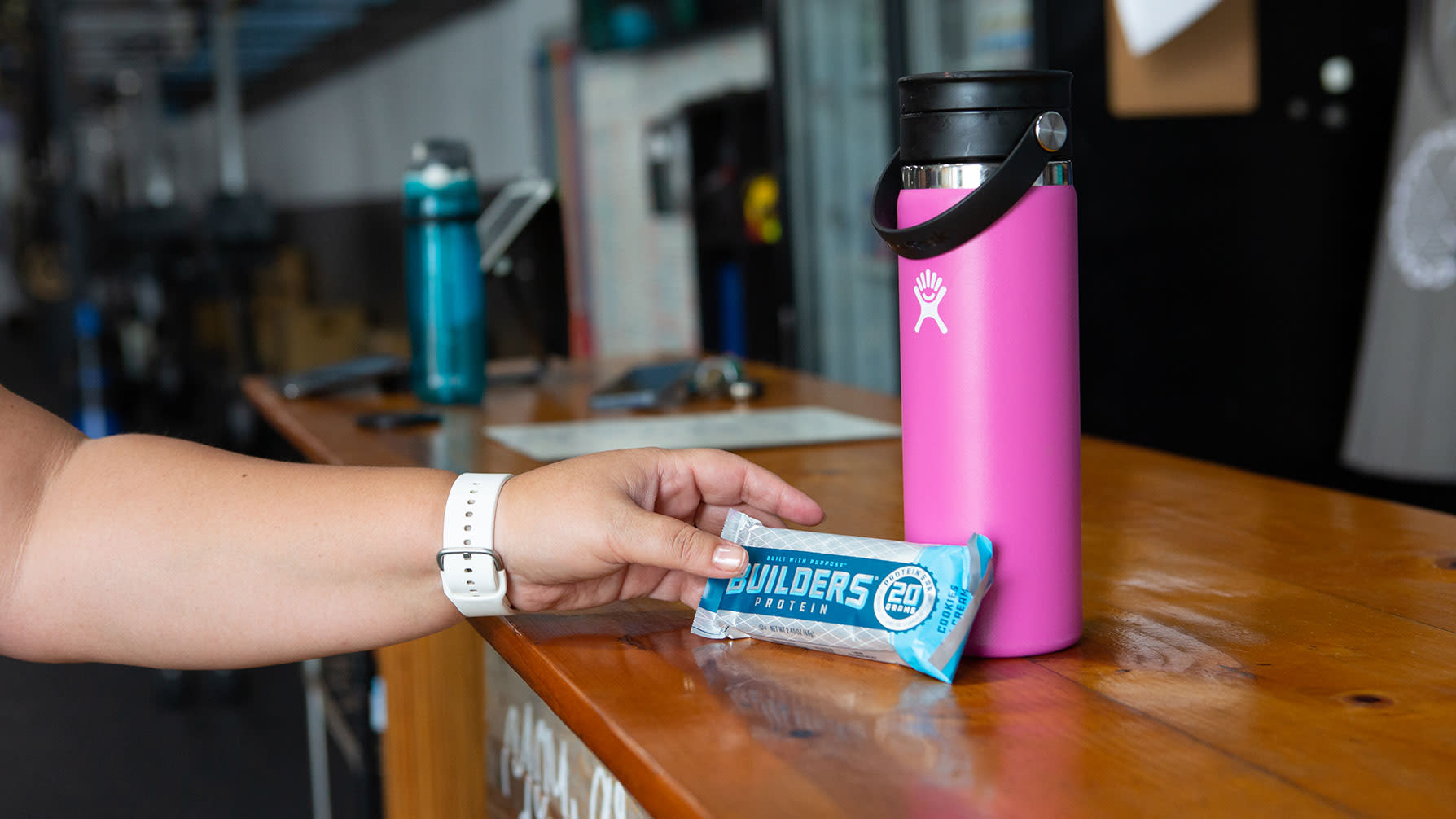
Here is a list of quick and easy post-workout meal and snack ideas that deliver around 20 grams of protein and quality carbohydrates. Choose the option based on your preferences and whether you need a meal or snack.
CLIF® Builders®: These portable bars are a perfect post-workout food to fuel your muscles for what’s next. They contain 20 grams of complete plant protein plus some carbohydrates to top off your tank. These bars are also gluten free, don’t contain high fructose corn syrup or artificial flavors, and use Rainforest Alliance Certified™ cocoa. Enjoy this with water after training to fuel recovery and get you ready for your next workout. For lighter workouts or when you don’t need a full 20 grams of protein, opt forCLIF® Builders® Minis, which are half the size and provide 10 grams of protein.
1 cup cottage cheese: This mighty snack contains a whopping 22 grams of protein. It’s a great snack to quickly grab after coming home from a hard workout. Top with some fresh fruit for a little extra boost of high-quality carbohydrates.
Smoothie: Whip up a smoothie using frozen berries, 20 grams of your favorite protein powder, and water, milk, or juice of your choice. Smoothies can be a good option for those who don’t feel like eating solid food post-workout but need a sturdy snack.
3 large eggs + ½ cup berries: Eggs are an easy way to get protein in post-workout. Three large eggs plus berries provides 20 grams of high-quality protein. Cook the eggs any way you like. For a fast option, make hard-boiled eggs ahead of time and you’ll have protein ready to go. Or, you can now find pre-cooked hard-boiled eggs in many grocery and convenience stores.
Quick egg and bean burrito: Fill a high-protein tortilla with one cooked egg (any style), ½ cup black beans, 2 tbsp shredded cheese, and some salsa for a delicious dose of protein and carbohydrates. Precook eggs (sliced hard-boiled eggs can work great) so all you have to do is fill and eat. Make this ahead and quickly heat up for a fast post-workout mini meal.
Protein oatmeal: Mix one packet of plain, instant oatmeal with 1 cup unsweetened, flavored soymilk and heat. Once cooked, stir in 2 tbsp peanut butter powder (or peanut butter, if preferred). This combo is great any time of the day, not just the morning.
Tuna and whole-grain crackers: If you crave something savory post-workout, try the super-portable single-serve pouches of tuna spread on a whole-grain cracker. Many brands offer preflavored tuna options, which make a delicious snack that’s super easy and mess-free. A single-serve pouch provides about 18 grams of protein.
Choose the snack or meal that best fits your schedule, lifestyle, and goals. I always encourage my clients to have a mindset of experimentation with their nutrition. Simply test something out and see how it goes; you’re not married to one post-workout food forever! If it doesn't feel right or you get tired of it, simply move on and test another option.
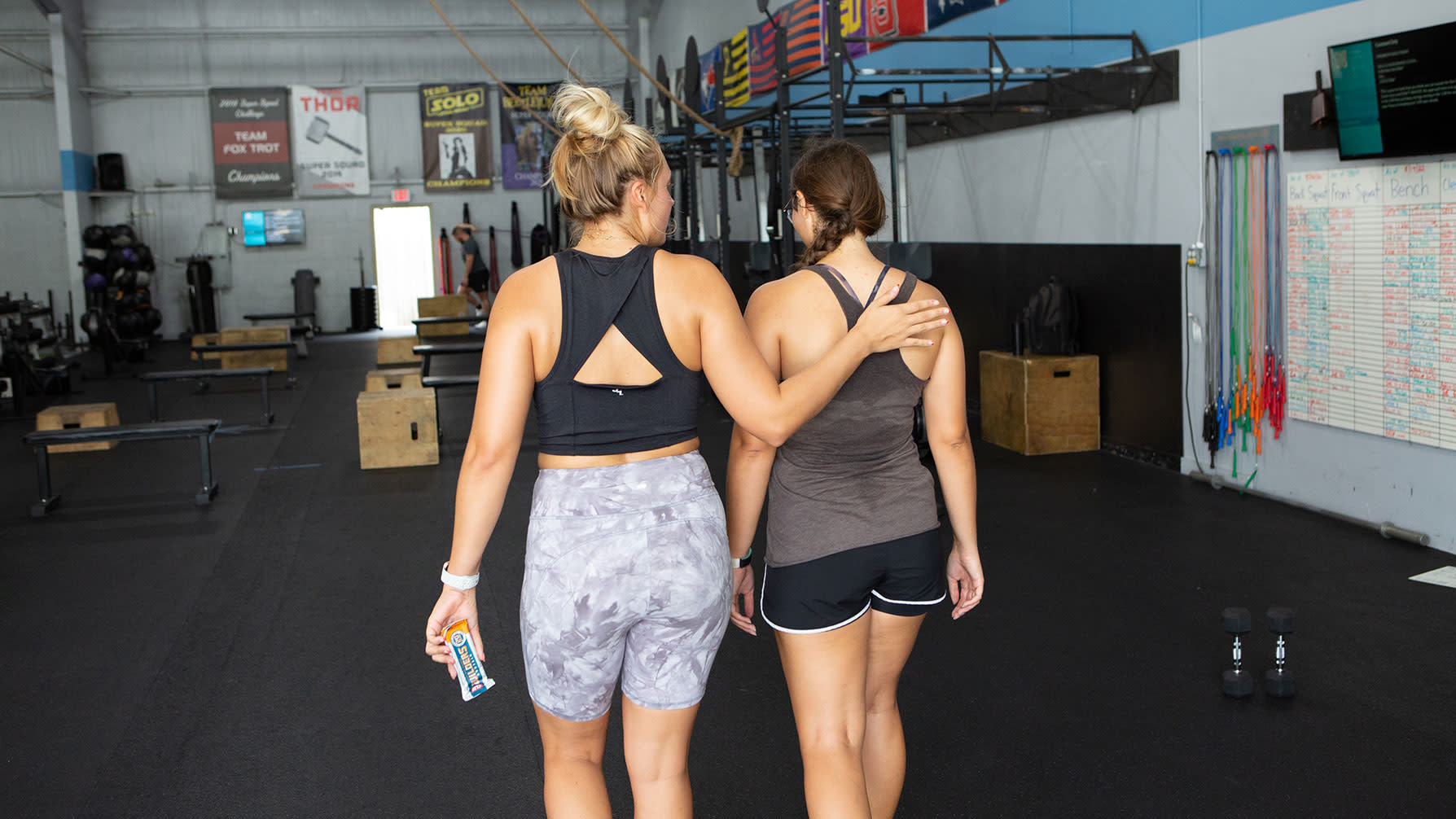
When Should I Eat After Exercising?
The exact time to eat post-workout becomes less important when your daily diet is already high in protein and/or you ate before your workout. The timing becomes more important if your protein intake is inconsistent throughout the day and/or you did not eat before your workout.2 If that’s a category you tend to fall in, then eating within 30-60 minutes post-workout can be very beneficial for your body.
Some studies suggest that there’s a post-workout “window” of 30-60 minutes where muscles are hyper-receptive to nutrients. Taking in a mix of carbs and protein in this time frame (instead of waiting for an hour or more) may significantly improve muscle repair and growth as well as overall performance. This can be beneficial for both strength and endurance training sessions.3 In my clients who desire to build muscle, change their body composition, or recover quickly, eating closely after a hard workout has made a noticeable difference for them.
In choosing the right time for you to eat after a workout, consider the time of day you work out, how often you eat throughout the day, if your protein intake is spread out between meals and snacks, and your energy and recovery needs. Many people train at times when a post-workout snack or meal is not only appropriate but could be very beneficial to their performance.
References
Karpinski C, Rosenbloom C. Sports Nutrition: A Handbook for Professionals, 6th Edition. Academy of Nutrition and Dietetics. 2017.
Kerksick CM, et al. International Society of Sports Nutrition Position Stand: Nutrient Timing. J Int Soc Sports Nut. 2017; 14:33.
Jӓger R, et al. International Society of Sports Nutrition Position Stand: Protein and Exercise. J Int Soc Sports Nut. 2017; 14:20.

